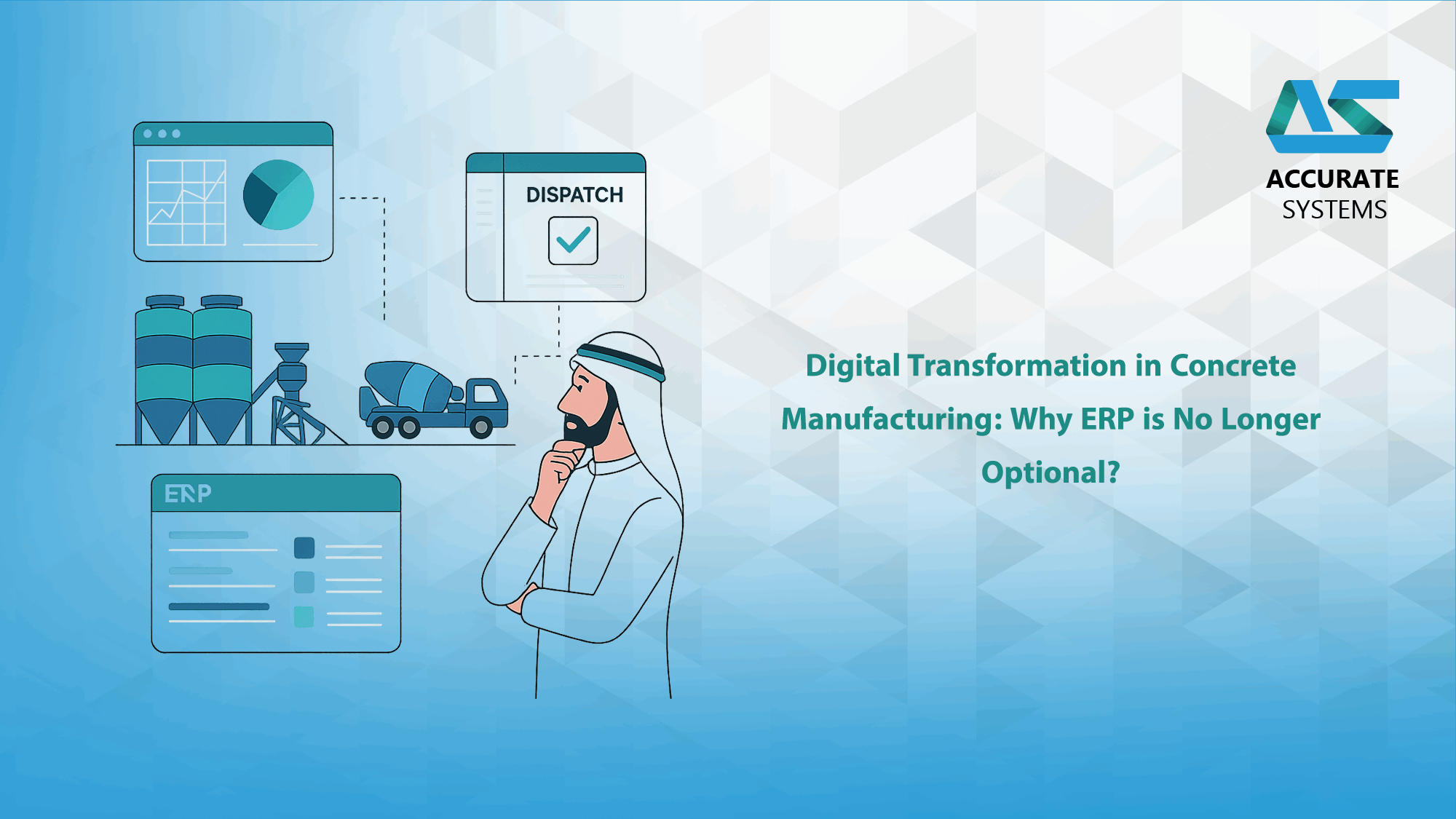Introduction: A Pivotal Shift in the Concrete Industry
Concrete manufacturing is no longer just about producing volumes of material—it’s about precision, timing, traceability, and real-time coordination across operations. As construction timelines accelerate and clients demand higher quality and transparency, the pressure on concrete manufacturers to digitize has intensified. Across the globe, concrete producers—especially in ready-mix and precast sectors—are embracing digital transformation to remain competitive, efficient, and compliant.
Enterprise Resource Planning (ERP) systems are at the core of this transformation. What was once considered a nice-to-have digital tool has now become a non-negotiable foundation for managing complexity, enabling data-driven decisions, and achieving operational excellence.
The Industry-Wide Push Toward Digital Maturity
The concrete manufacturing industry is evolving, driven by market pressures, technology innovation, and stricter compliance standards.
Key Drivers of Digital Transformation:
- Customer Demands: More transparency, traceability, real-time delivery updates, and digital invoicing.
- Market Competition: Price competition and customer loyalty depend heavily on service quality, accuracy, and responsiveness.
- Operational Complexity: Coordinating batching, dispatch, fleet, materials, and compliance across sites requires an integrated platform.
- Regulatory Requirements: Governments (e.g., Saudi Arabia’s ZATCA Phase 2) now mandate e-invoicing and digital compliance.
Companies that delay digital adoption risk losing market share to more agile competitors who can deliver faster, cheaper, and smarter.
Why ERP Is the Backbone of Digital Transformation
ERP is no longer just accounting software—it is the nerve center of a digitally mature concrete operation. A well-implemented ERP enables total visibility, automation, and cross-department synchronization.
Core Benefits of ERP in Concrete Manufacturing:
- Unified Data Platform
- Centralizes batch data, delivery status, customer orders, inventory, and financials.
- Reduces data silos and errors from disconnected systems.
- Operational Efficiency
- Automates workflows: order-to-dispatch, inventory reorders, driver scheduling, batch ticketing.
- Cuts manual work, speeds up communication, and increases plant throughput.
- Real-Time Visibility
- Dashboards provide instant insights into plant productivity, delivery status, material consumption, and financial KPIs.
- Enables proactive issue resolution and performance optimization.
- Customer-Centric Processes
- Improves quote turnaround, delivery predictability, and customer service through self-service portals and live updates.
- Ensures timely invoicing and payment tracking.
- Compliance and Audit Readiness
- Tracks every transaction, mix design, and delivery for full traceability.
- Generates audit-ready reports, e-invoices, and digital tax documents for ZATCA and other regulators.
ERP as a Competitive Differentiator in the Concrete Sector
As more producers adopt ERP systems, the technology becomes a competitive baseline—not just an edge. Digital laggards struggle to keep up with:
- Customer expectations for digital communication
- Data-based project management and cost control
- Integration with supply chain and construction site tech
ERP systems such as ERPNext offer industry-specific solutions tailored for ready-mix concrete, precast manufacturing, and large-scale contractors. They provide flexibility, scalability, and modern interfaces that help companies adapt quickly.
Concrete producers with mature ERP implementations are:
- Winning larger contracts due to operational reliability
- Reducing fuel and material waste through intelligent planning
- Enhancing employee productivity with mobile-friendly systems
From Data to Strategy: Enabling Smarter Decisions
One of the greatest values of ERP is not just automation, but decision support. BI dashboards, reporting modules, and predictive analytics help plant managers and executives:
- Forecast demand and raw material needs
- Optimize fleet routes and batching schedules
- Identify underperforming regions or customers
- Benchmark performance across sites or shifts
ERP isn’t just a system—it’s a decision engine.
Conclusion: The Time for ERP Is Now
Digital transformation in concrete manufacturing is not a trend—it’s a requirement for survival. As competitive pressure mounts, ERP systems have evolved into a strategic asset that aligns people, processes, and data for peak performance.
Companies that embrace ERP are laying the groundwork for:
- Long-term profitability
- Operational resilience
- Compliance leadership
- Sustainable growth in a highly demanding industry
Delaying ERP adoption isn’t just a missed opportunity—it’s a growing liability.
#ERPNext #ConcreteERP #DigitalTransformation #ReadyMixConcrete #ConstructionTech #SmartManufacturing #BatchingAutomation #ZATCACompliance #Industry40 #ERPforConstruction



Leave A Comment